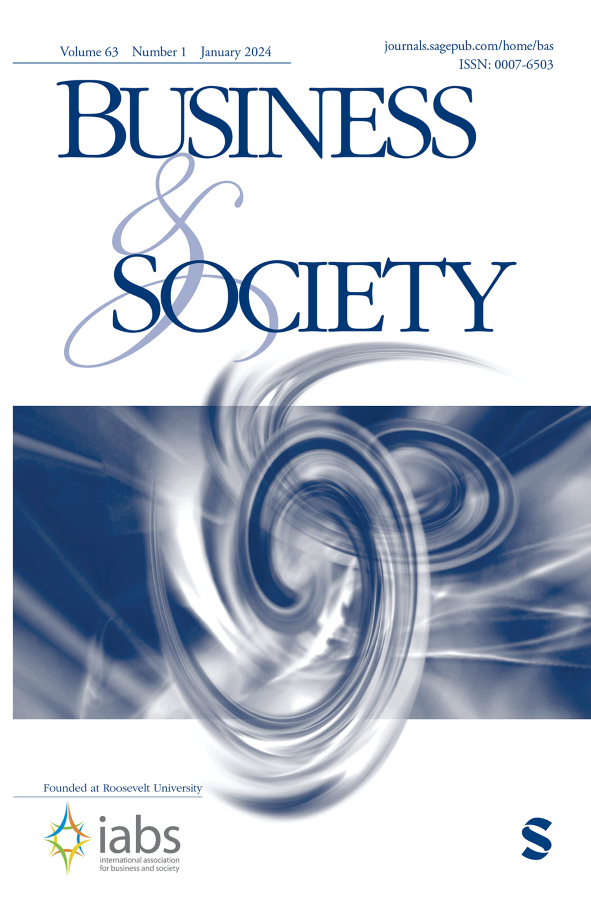More Than an Umbrella Construct: We Can (and Should) Do Better With CSR by Theorizing Through Context
IF 6
3区 管理学
Q1 BUSINESS
引用次数: 4
Abstract
The importance of context in theory development is well recognized across multiple fields of study in management and organization (Bamberger, 2008; Cappelli & Sherer, 1991; Johns, 2006; Maloney et al., 2016; Rousseau & Fried, 2001; Xu & Zhang, 2022). At its most basic level, context adds scope conditions to basic hypotheses: Condition A may lead to Condition B under Context X but not in Context Y. Ignoring situational contingencies may lead to systemic bias, to overgeneralizing results based on a lack of awareness of context-based range restrictions, or to reversed causal directions and sign reversals in academic research (Hackman, 2003; Johns, 2006; Maloney et al., 2016). It also may contribute to overly-optimistic beliefs in one-size-fits-all solutions that overlook the need for careful adaption of practices to match local conditions (Ragin, 2000). In line with these long-standing calls, we argue that within the domain of business and society, and arguably of management and organization studies more broadly, we still need to pay more attention to context theorizing. As Bamberger (2008) asserted: “context counts and, where possible, should be given theoretical consideration” (p. 839, italics in original). Looking back at our term as co-editors, in this Editors’ Insights, we chose to revisit the benefits of theorizing through context for issues of corporate social responsibility (CSR) and related topics such as corporate social performance (CSP), corporate citizenship, corporate responsiveness, and civic不仅仅是一个伞形结构:我们可以(也应该)通过语境来理论化企业社会责任
背景在理论发展中的重要性在管理和组织的多个研究领域得到了很好的认可(Bamberger, 2008;Cappelli & Sherer, 1991;约翰,2006;Maloney et al., 2016;卢梭和弗里德,2001;Xu & Zhang, 2022)。在最基本的层面上,情境为基本假设增加了范围条件:在情境X下,情境A可能导致情境B,但在情境y中不会。忽视情境偶发可能导致系统性偏见,在缺乏对情境范围限制的认识的基础上过度概括结果,或者在学术研究中导致因果方向逆转和符号反转(Hackman, 2003;约翰,2006;Maloney et al., 2016)。它还可能导致对一刀切的解决方案过于乐观的信念,忽视了仔细调整实践以适应当地条件的必要性(Ragin, 2000)。根据这些长期存在的呼吁,我们认为,在商业和社会领域,以及更广泛的管理和组织研究领域,我们仍然需要更多地关注语境理论化。正如Bamberger(2008)所断言的那样:“上下文很重要,并且在可能的情况下,应该给予理论考虑”(第839页,原文斜体)。回顾我们作为共同编辑的任期,在这篇编辑的见解中,我们选择通过企业社会责任(CSR)问题和相关主题(如企业社会绩效(CSP)、企业公民、企业响应能力和公民)的背景来重新审视理论化的好处
本文章由计算机程序翻译,如有差异,请以英文原文为准。
求助全文
约1分钟内获得全文
求助全文
来源期刊

Business & Society
BUSINESS-
CiteScore
14.80
自引率
11.40%
发文量
56
期刊介绍:
Business & Society publishes original research, book reviews, and dissertation abstracts relating to business ethics, business-government relations, corporate governance, corporate social performance, and environmental-management issues. Manuscripts relating to the field of business and society in general are also published. Submissions of theoretical/ conceptual work as well as empirical studies are encouraged. Business & Society is the first peer-reviewed scholarly publication devoted exclusively to the field of business and society, and it is the official journal of the International Association for Business and Society (I.A.B.S.), the only independent professional association dedicated to business and society teaching and research.
 求助内容:
求助内容: 应助结果提醒方式:
应助结果提醒方式:


